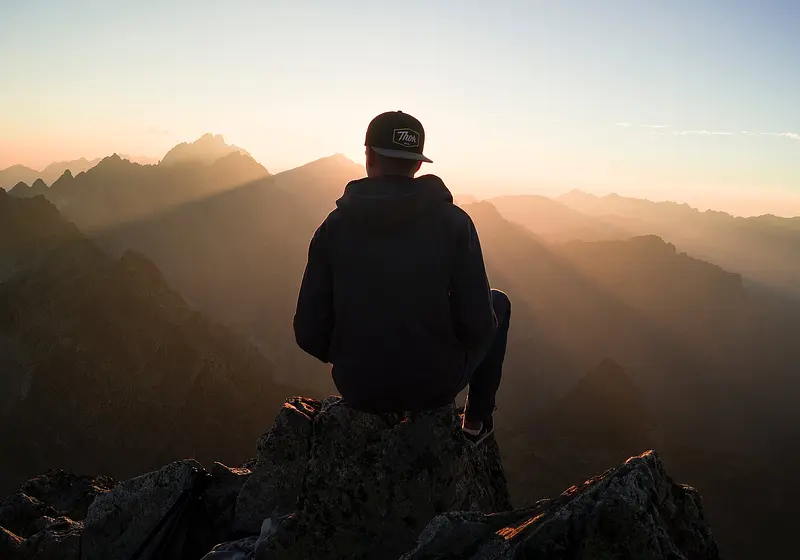In 2024, we live in a world that would have been dismissed as science fiction only a few decades earlier: the emergence of diseases like polio; the whole world connected by the internet, bringing more information to the fingertips of the average person in one minute than our ancestors could learn in a lifetime. Life expectancy is up, poverty rates are down, and technological innovation has made our lives easier and more comfortable than at any time in history. But amidst all that improvement, it often seems like we're collectively convinced that society is in shambles.
Why, if everything's getting so much better, do we obsess over everything that's going wrong? And are we right to grow increasingly pessimistic about what's to come?

Image Credits: Doctorxgc from Wikimedia Commons
Let us slide into your dms 🥰
Get notified of top trending articles like this one every week! (we won't spam you)
Take the Quiz: Which Female Character Trope Do You Belong To?
Whether it's in film, TV, or literature, you've likely come across these female character tropes. Take this quiz to discover which one best matches...
A Culture Addicted to Doom
Take a picture of the media today, and one might think we are about to confront some kind of collapse. Headlines run thick with the latest climate disaster, new depths in political issues, and global unrest-social media fuels those anxieties, turning every bit of terrible news into a viral sensation. We live in a time when every instant is filled with notifications of this new crisis or that, begging us to panic or protest or despair.
But is the world really falling apart, or is this just how we're wired?This is a disagreement of which psychologists have long been aware: humans have a natural "negativity bias." It was an evolutionary attribute that helped our ancestors get through. People who paid ready attention to dangers and threats, such as predators or shortage of food, were those most likely to survive the worst. Unfortunately, that instinct can boomerang in today's world. When every misstep or crisis is magnified, our negativity bias kicks in and we are led to perceive everything as evidence of the collapse of society.
Platforms devised to keep us engaged inevitably highlight controversy, anger, and fear-all emotions that make us more likely to comment, share, or argue. The end result of this all is that our perceptions of reality are skewed toward the negative, but, by most objective measures, life has gotten better in the last few decades.

Image Credit: mikemacmarketing from Wikimedia Commons
The Justified Fear: Should We Be Afraid?
It is little surprise, then, that the pessimism of our age is overwrought-at least by the standards of earlier eras-but there are some good reasons why people feel the future will be a scary place. Climate change certainly is a scientifically valid threat to human life, as the incidents of wildfires, floods, and droughts escalate quickly. Economic inequality has become almost breathtaking, with billionaires taking in wealth at levels previously unimagined, all while most struggle just to make ends meet.
Political systems feel more fragile, and the social issues-expressed both online and on the streets-serve as a constant reminder of the divisions that are growing.But here's where the debate gets tricky: do these challenges signal an inescapable decline, or are they just the next set of obstacles that we have to overcome?History is full of such impossibilities. The Cold War, bringing us to the brink of nuclear annihilation; the Great Depression, wiping out fortunes and hope for millions; plagues and pandemics, decimating populations. Yet, in the face of these and other hardships, humanity has not only continued to persevere but has often became stronger. Today, we are much more aware of the challenges that lie before us and better armed with tools with which to tackle them.
Power in Pessimism
There's a power in our collective anxiety, too. Some of the greatest leaps forward in history have come from acknowledging a problem and refusing to stop ourselves to its inevitability. Take for instance the civil rights movement, the fight for women's suffrage, and the eradication of diseases like smallpox.
Those triumphs were born of a mixture of outrage and hope-people knew that this was not how the world should be, but they also trusted it could be different.The key, then, is to balance our pessimism with a sense of possibility. Yes, the challenges we face are real, but so is our capacity to overcome them. Our pessimism should be fuel—not a final destination. Recognize the problems, yet do not lose sight of the amazing progress we have made.

Image Credit: SynLLOER on Wikimedia Commons
The Future Is UnwrittenᅳAnd That's Exciting
Ultimately, what our pessimism will do today-make the future better or worse-is a question of our response. We can sit in the middle of despair, understanding and knowing that society is rapidly declining, or we can be motivated and take action because we are concerned. The fact is, humanity has always been standing on the brink of crisis, and it is precisely during those moments that we have taken the greatest leaps forward.
Are we then justified in our pessimism? Yes-but only as that pessimism serves as a driving force toward change, not a sense of defeat. Our future is not decided for us; it's up for grabs. It waits for us to decide how we shall mold it.


















